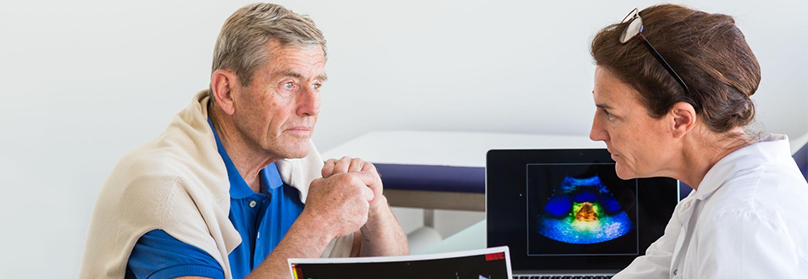Throughout the month of March, medical professionals, charity organisations and men and women on their own cancer journey are uniting in an effort to raise awareness of Prostate and Ovarian cancer.
Ovarian cancer affects more than 7,100 women each year, more commonly women over 50 are affected but the disease is not limited to this particular age group. The ovaries are a pair of small organs in the female reproductive system that contain and release an egg once a month. The cause of ovarian cancer is unknown, but certain things are thought to increase a woman’s risk of developing the condition, such as age and the number of eggs the ovaries release. It is important to note that the symptoms are similar or sometimes identical to that of other conditions such as irritable bowel syndrome, so seeking the assistance of your GP is crucial in order to correctly identify your condition. The most common symptoms to look out for are:
- Frequent pain in your pelvis and abdomen
- A persistently bloated abdomen
- Frequent bouts of nausea and loss of appetite/feeling full quickly
- Passing urine more frequently than usual
Being diagnosed with ovarian cancer can affect daily life in many ways. However, support is available for many aspects of living with ovarian cancer, including emotional, financial and long-term health issues Prostate cancer is the most common cancer affecting men in the UK,with the NHS reporting up to 40,000 new cases each year. Prostate cancer takes the life of over 10,000 UK males ever year. The causes of prostate cancer are largely unknown. However, certain things can increase your risk of developing the condition, such as getting older. The prostate is a small gland in the pelvis found only in men. The most common symptoms include:
- Passing urine more often than usual
- Passing urine may also become more difficult
- You could experience the sense of being unable tofully empty your bladder
- Having blood in your urine
- Experiencing pain whilst urinating
The most commonly used tests for prostate cancer are blood tests, a physical examination of your prostate. Treatment for these cancers can include Chemotherapy, radiotherapy, surgery, and less evasive - ultrasound. As with any form of cancer, the key to combating the disease lies in identifying symptoms as early as possible. The reason why older men and women are urged to undergo regular checks is down to the fact that the early stages of these cancers often show no symptoms at all and cancer is more common in this age group. Cancer remains one of the biggest killers in the UK and worldwide. By the end of 2016 a thousand people will be diagnosed with cancer every day. Medical practitioners and researchers, however, are continuously working to find new ways to combat the disease and have made significant achievements in recent years. Survival rates in the UK are improving and mortality rates have decreased since the early 1990s. Researchers believe vitamins and nutrients found in certain foods can help lower the risk of prostate cancer. These include:
- Soy foods such as soy milk, soy yoghurt and tofu
- Tomatoes – a compound known as lycopene found in tomatoes has been found to be beneficial in lowering prostate cancer risks
- Cruciferous vegetables including spinach, cabbage and broccoli
There are many substances in fruits and vegetables that may potentially have anti-cancer properties. However, at the moment we don’t know this for certain, and we don’t understand which ones are most likely to help or how they work. But there still isn’t enough clear information to make precise recommendations about what someone with a particular type of cancer should eat. In general, cancer experts recommend following a healthy balanced diet and lifestyle.




